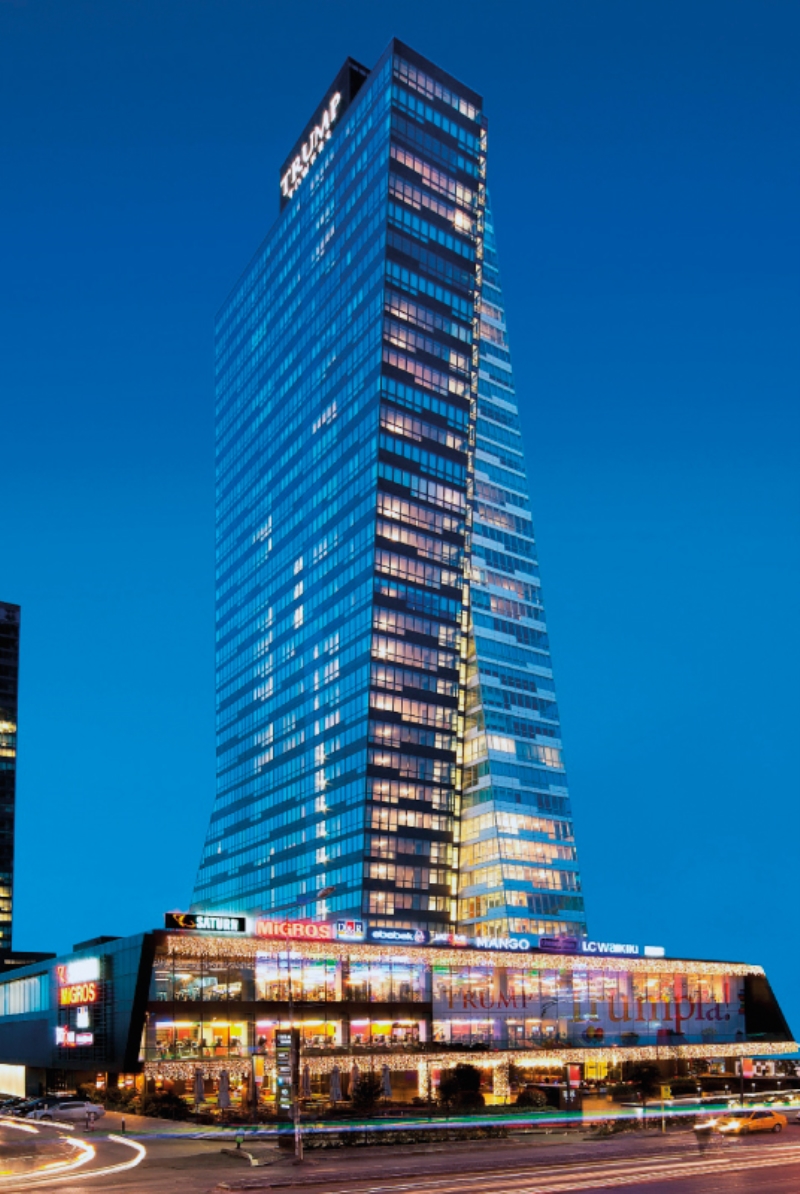Warnings
Abound as Trump Wheels and Deals with Despots
| Trump Tower in the Phillipines |
On Monday, Trump said he would be "honored to
meet" with North Korean leader Kim Jong Un, who he described days earlier as being a
"smart cookie" for his ability to maintain the authoritarian power he
inherited from his father.
The president also drew criticism this weekend for extending
a White House invitation to known strongman Philippines President Rodrigo
Duterte.
Trump also rolled out the red carpet last month for
Egyptian President General Abdel Fattah el-Sisi, who he praised as being
"a fantastic guy" with whom he shares "good
chemistry"—despite the autocrat's egregious and documented record of human
rights abuses.
 |
| Trump Tower, Istanbul, Turkey |
Not to mention the
U.S. president's stated admiration of and ambiguous
relationship with Russian President Vladimir
Putin as well as his "love affair" with arch-conservative
Israeli Prime Minister Benjamin Netanyahu, to whom Trump has pledged support for an apartheid state.
"Does the
president have a thing with these totalitarian leaders?" New York
Times reporter Glenn Thrush asked White House press secretary Sean
Spicer on Monday. "Does he admire something about the way these guys
conduct themselves?"
After speaking with a
number of White House officials, Washington Post reporter Philip
Rucker summed up the dynamic.
"Inside the Trump
White House," Rucker wrote, "the thinking goes that if mending
bridges with a country like the Philippines—historically a treaty ally whose
relationship with the United States deteriorated as Duterte gravitated toward
China—means covering up or even ignoring concerns like human rights, then so be
it."
But human rights
experts are concerned because Trump's embrace of authoritarian leaders seems to
be a reflection of his domestic and foreign policy agendas.
"We're trying to
protect the homeland and the domestic economy, and the rest is all cutting
deals with whoever is willing to cut deals with us. There's not much room in
that equation for standing up for the rights, freedoms and well-being of other
people."
Others have noted that
Trump has even more to gain from his wheeling and dealing with despots—namely a
number of global business interests.
From a new $150
million, 57-story Trump luxury residential tower in Manila, Philippines to
"a residential and commercial retail center in Istanbul," Politico reported Tuesday on how some of the
president's business dealings have conspicuous overlaps with his foreign policy
decisions.
"This is the big
stuff," Richard Painter, a former George W. Bush White House ethics lawyer
and vice chair at Citizens for Responsibility and Ethics in Washington (CREW),
told reporters Darren Samuelsohn and Nahal Toosi. "This is where his
conflicts really matter."
Ethical concerns also
shadowed Trump’s two attempts to ban travelers from several majority-Muslim
countries.
In both attempts,
which were blocked by the courts, Trump left out Egypt, Saudi Arabia and the
United Arab Emirates, three countries where he was involved in business deals,
financial disclosures showed.
Former Obama White
House ethics lawyer Norm Eisen pointed out that, like those that fell under the
ban, populations in the three countries “have a demonstrated history of
supporting terrorism."
Then there's China.
Trump embraced the 'One China Policy' in January in a phone call with President
Xi Jinping, despite earlier friendliness toward Taiwan.
Sen. Dianne Feinstein
responded by charging that Trump may have violated the Constitution's
emoluments clause, which prohibits federal officials from accepting payments
from foreign governments. The California Democrat also questioned the timing of
the policy moves, which she said gave "the obvious impression of a quid
pro quo."
"Giving
diplomatic freebies to dictators and authoritarian strongmen," cautioned Rob Berschinski, vice president
of policy at Human Rights First, "is a fool's bet that undermines American
security and our global leadership role."
"Inviting these
men to the White House in effect places the United States' seal of approval on
their heinous actions," he added. "None of this is lost on the people
that men like these hold under their thumb, which always comes back to bite
us."